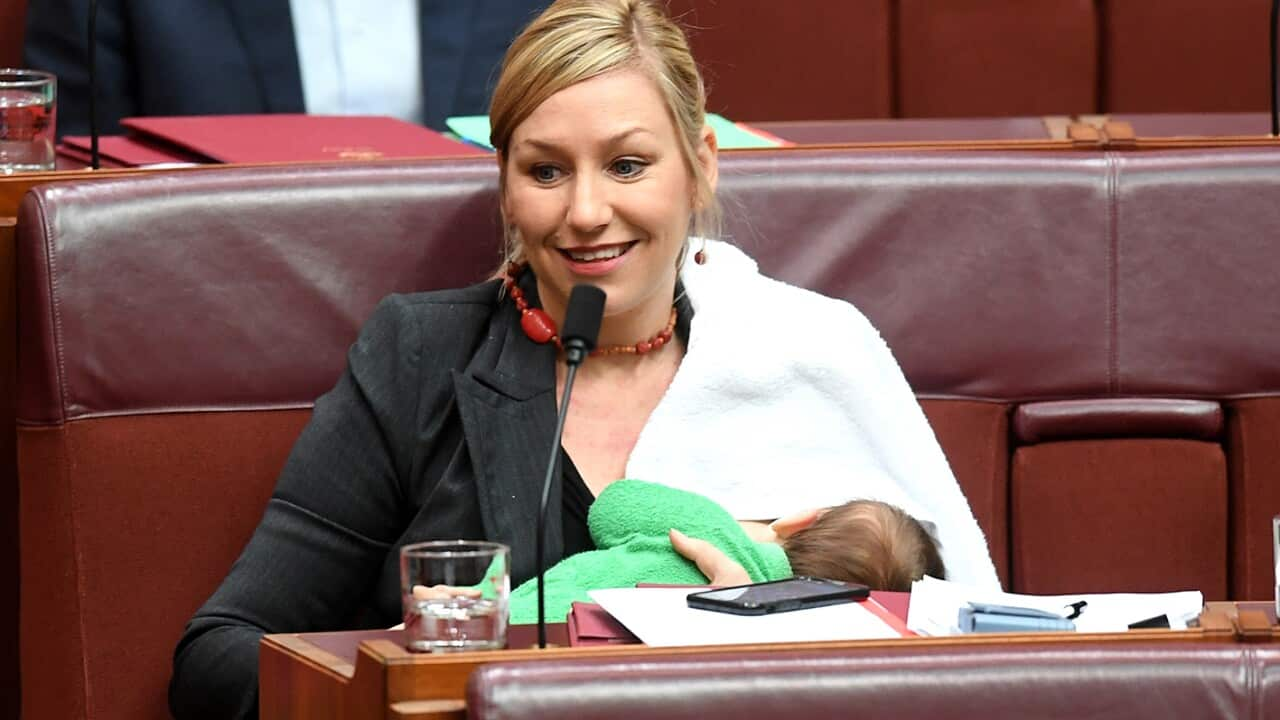Athletes have welcomed a by the International Olympic Committee (IOC) where breastfeeding athletes were told they would not be able to bring their babies with them to the Tokyo Olympic Games - thereby leaving many of them to choose between competing in their sport or staying with their baby.
But for athletes such as former Olympian Hayley Wickenheiser, the ruling was another of "an archaic, old boys system".
Canadian basketball player Kim Gaucher, for example, took to Instagram to talk about having to choose between competing at the Olympics or being without her three-month-old daughter for almost a month, or ultimately having to skip the Games altogether. “Right now, I’m being forced to decide between being a breastfeeding mom or an Olympic athlete. I can’t have them both,” she said.
Long-distance runner Aliphine Tuliamuk who is breastfeeding her five-month-old daughter Zoe also took to social media to say: "I had been putting off thinking about Zoe not coming to Tokyo with me for a while now, but I had to start to, at team processing a week ago in Eugene, and I have cried a lot since."
The rule was a reminder how for some women breastfeeding and being at a workplace aren’t conducive to one another. As Cecilia Tomori, director of global public health and community health for the Johns Hopkins University School of Nursing : “But more importantly, this entire situation should have never taken place. This guidance [banning nursing infants] should have never been issued. And it highlights how often mothers and infants are often overlooked in the policies we make.”
Boxer Mandy Bujold who is preparing to take part in the Olympics , “These are things that do not affect a man. They don’t have to plan their career and sport around a pregnancy or around breastfeeding.” As Bujold mentions, for many female athletes building a pregnancy and breastfeeding plan is part of their entire career planning.
Tuliamuk for example was able to have her baby because the Olympics was postponed last year. She : "We’ve been wanting to start a family, and so the disruptions to the 2020 season made it possible for us to start a family before the Olympics."
Competing within their sport is work for an athlete, which makes the Olympics a workplace for them. In Australia it’s the law that your employer needs to make reasonable attempts to meet your breastfeeding needs. It's also in Switzerland where the IOC is based. But the law is by no means perfect, and it doesn’t mean for example, that many women don’t come across hurdles in their attempts to combine breastfeeding with work.
As has found when women are encouraged to breastfeed by having flexible arrangements with work, they do so for longer periods of time. For athletes it’s much the same, and as the Olympians who spoke out showed, they challenged their workplace and won.
After receiving news of the reversal of the decision, Kim Gaucher said : "To all of the working moms out there who’ve had to fight this fight before, I think it’s just a really good day for women in sport today."
The capacity of women to be world class athletes as well as breastfeeding mothers is something to admire.
Marathon runner Sophie Power, for example showed the power of a mother's body when she was photographed breastfeeding her baby halfway through a 171-kilometre race while other athletes around her were collapsed from exhaustion. The photograph .
But for all their abilities, these women are mothers too. And like all mothers they should never have had to contemplate choosing whether to feed their babies or participate in what for many is the pinnacle of their careers. By speaking out they have not only made change but hopefully inspired other mothers to keep breastfeeding even when work makes this complicated, because if the Olympics can change for women, all workplaces can.
Saman Shad is a freelance writer.




